Questionrecently i lost a female gecko and i still have my male gecko. He is around 7-8 years old since i've had him and he shedded aroudn 6-7 days ago. As far as i have seen he has not been eating a lot at all and his tail is losing thickness. I feed him as a main diet super worms and occasioanlly crickets (both i powder with calcium powder). I'm really beginning to feel frustrated and even more worried and i'm scared tireless that he is impacted from a cricket but i need some signs from a real vet and i cant afford to bring him to one myself.
AnswerHi Brad,
There are numerous conditions that can cause loss of appetite in reptiles. Inadequate temperatures are one but since you have had him a number of years I am going to assume that he has an suitable hot spot(around 90F).
The fact that you recently lost another leo suggests that you may be dealing with an infectious agent like intestinal parasites. Loss of appetite and weight loss are commons symtoms of that and are usually accompanied by runny or mucousy stools. Has he been pooping at all and does it look normal?
Impaction with leos is most commonly cause by substrate like sand or bark chips. I think it would be quite unlikely that your adult leo could become impacted from crickets which are a standard feeding staple. Many keepers also use superworms as a staple with leos. Impaction from feeder insects often has secondary causes that contribute like dehydration, poor temperatures, calcium deficiencies or over-sized insects being fed to young reptiles.
As you already stated in your question, you really do need a vet to give you a definite diagnosis through examination and testing. The first thing they would likely want to do is a fecal exam which is looking for parasites under a microscope. Any vet should be able to do this, you don't need a specialized reptile vet so if you already have a vet that you use for a cat or dog they may agree to perform the fecal for minimal costs. There are anti-parasitic medications and dosing information available on-line but without a definite identification of what (if any) parasite you are dealing with then you are only guessing about the treatment.
In the meantime, try soaking him in some tepid water. Animals that are not eating well are often not drinking well either and dehydration can lead to other problems. It will also encourage him to have a bowel movement. You can supplement his feeding with some chicken-based baby food. Try dabbing a bit on his snout, leos will usually respond by licking it off. If you do feel that he may have a blockage you can add a few drops of mineral oil to the baby food ( you can find that at any drug store). It acts as a lubricant and is used to treat constipation in humans.

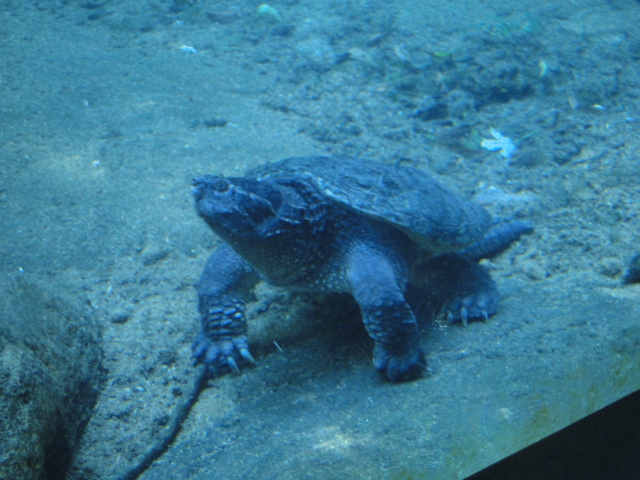 Identification
Question
Could this be an allig Is this a type of
Identification
Question
Could this be an allig Is this a type of
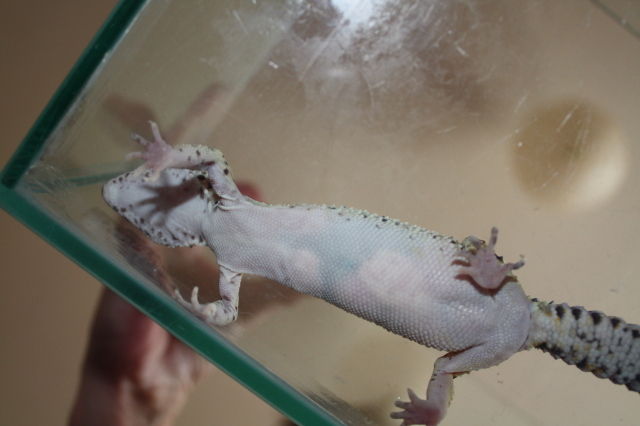 Pregnant Leopard gecko - Egg bound??
QuestionBelly.
QUESTION: Hi Tracie,
I spoke to
Pregnant Leopard gecko - Egg bound??
QuestionBelly.
QUESTION: Hi Tracie,
I spoke to
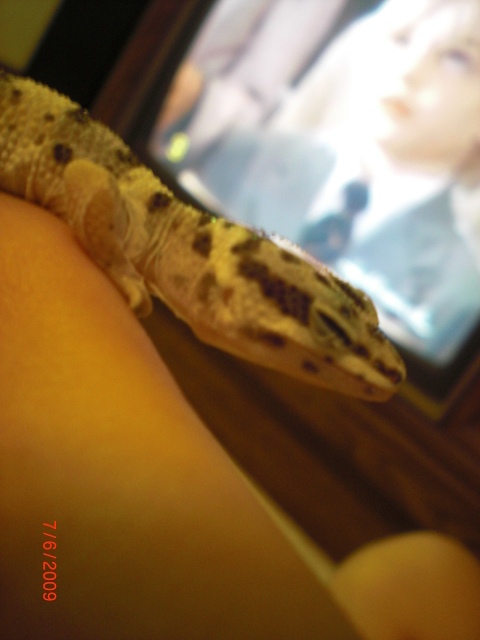 Geckos eyes stuck shut
QuestionGecko
QUESTION: My leopard geckos eyes a
Geckos eyes stuck shut
QuestionGecko
QUESTION: My leopard geckos eyes a
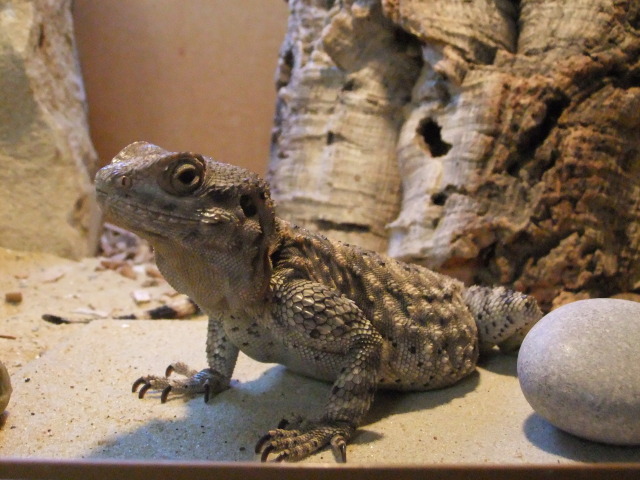 Painted Agama
QuestionPainted Agama
QUESTION: Hi i have a fema
Painted Agama
QuestionPainted Agama
QUESTION: Hi i have a fema
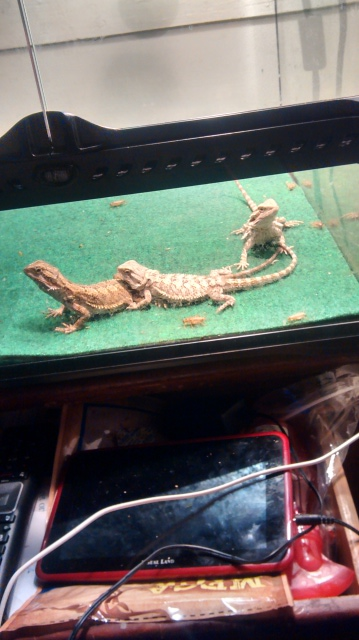 my bearded dragons
Questionmy dragons
QUESTION: Hello I have three
my bearded dragons
Questionmy dragons
QUESTION: Hello I have three